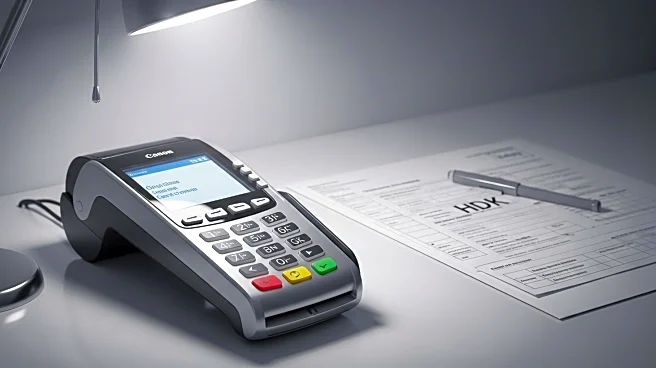What is the story about?
What's Happening?
The Internal Revenue Service (IRS) announced that it will cease issuing paper tax refunds starting September 30, transitioning to fully electronic federal payments. This change aligns with an executive order signed by President Trump in March, aiming to enhance security and efficiency in federal payments. The IRS highlighted that paper checks are significantly more prone to being lost, stolen, or delayed compared to electronic payments. Taxpayers are advised to provide valid bank account information to receive direct deposits, which are generally processed faster than mailed checks. The agency is also planning to expand electronic payment options for tax submissions, although current methods remain unchanged.
Why It's Important?
The shift to electronic payments is expected to reduce costs and improve the security of federal transactions, addressing issues of financial fraud and improper payments. This move could streamline the refund process, benefiting taxpayers with quicker access to funds. However, it may pose challenges for individuals without access to digital payment options, necessitating alternative solutions from the Treasury. The transition reflects broader trends towards digitalization in government services, potentially influencing future policy decisions and technological investments.
What's Next?
Taxpayers should prepare for the transition by ensuring they have valid bank accounts for electronic refunds. The IRS plans to provide further details on alternative payment methods for those without digital access. Additionally, the agency is expected to expand electronic payment options for tax submissions, potentially affecting how individuals and businesses manage their tax obligations.

















